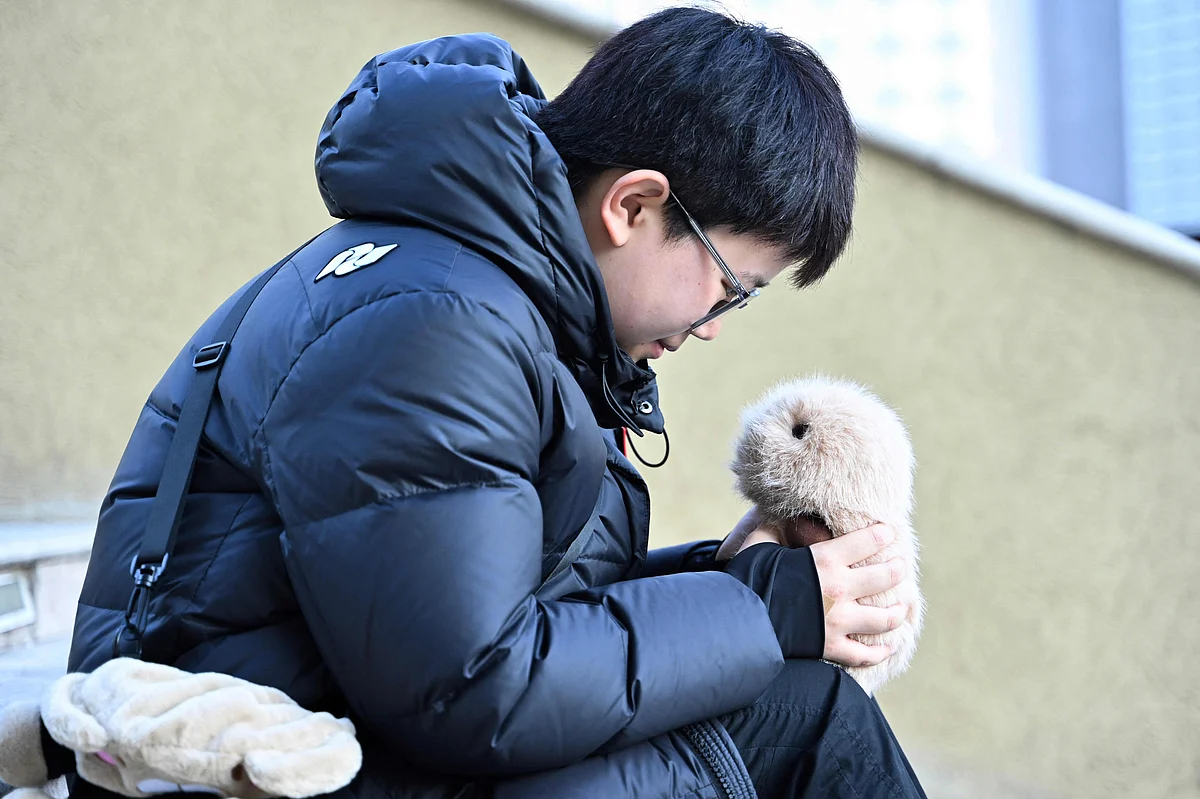Video: Young Chinese turn to AI pets for emotional relief
A new generation of advanced AI pets is offering companionship and emotional support

At a shopping mall in Beijing, Zhang Yachun murmurs to her closest confidant, a fluffy AI-powered robot whose soothing chirps remind her that she is not alone.
Zhang, 19, has long battled anxiety over school and work and has struggled to form deep friendships with other people. But she says life has become easier since buying a BooBoo, a "smart pet" that uses artificial intelligence to interact with humans.
"I feel like I now have someone to share the happy times with," Zhang told AFP in the apartment she shares with her parents and a real pet duck.
Across China, a growing number of people are turning to AI to combat social isolation as the technology matures and becomes widely accepted.
Wriggly, furry, resembling a guinea pig, BooBoo is produced by Hangzhou Genmoor Technology and retails for up to 1,400 yuan ($190).
Developed with children's social needs in mind, it has sold about 1,000 units since May, according to the company's product manager, Adam Duan.
On an outing this month, Zhang ferried her companion, which she named "Aluo", in a cross-body carrier, whispering to the rugby ball-sized creature as it nodded and squeaked.
At a pet shop, she pressed the beige bundle against the window to admire a ginger cat before buying Aluo a tiny winter coat designed for dogs.
She said the robot plays the same role as human friends, adding: "(It) makes you feel you are someone who is needed."
According to consulting firm IMARC Group, the global market for "social robots" like BooBoo is expected to grow by a factor of seven to $42.5 billion by 2033, with Asia already dominating the sector.
For Guo Zichen, 33, an intelligent pet could help when he cannot play with his child.
"Right now, family members are spending less time with the children", Guo said as he examined a robotic dog on sale at the flagship store of tech company Weilan in the eastern city of Nanjing.
"Buying one for my kid can help them with studying and other things," he mused.
Weilan's AI dog, called "BabyAlpha", sells for between 8,000 ($1090) and 26,000 yuan ($3,500), and the company says 70 per cent of buyers are families with young children.
But Guo said he was skeptical that the electronic pup could bring as much joy as an actual canine.
"The biggest difference is that dogs have souls, while (BabyAlpha) looks different in an indescribable way", he said.
"Overall, you feel like it's not the same as the real thing."
While the 1990s introduced electronic pets to the world like Japan's digital Tamagotchis and American-made Furbies that could mimic speech, computerised companions are becoming more functional with AI.
A growing number of AI products in China cater to people's emotional needs, from conversational chatbots to lifelike avatars of the deceased.
Experts say social shifts, such as the impact of the government's decades-long one-child policy, are helping drive market growth.
People born in the policy's early years are now in their 40s and facing an economy burdened with soaring home prices, higher living costs, and increased work stress, which is stretching their ability to focus on their own children.
Sign up for the Daily Briefing
Get the latest news and updates straight to your inbox
Network Links
GN StoreDownload our app
© Al Nisr Publishing LLC 2026. All rights reserved.